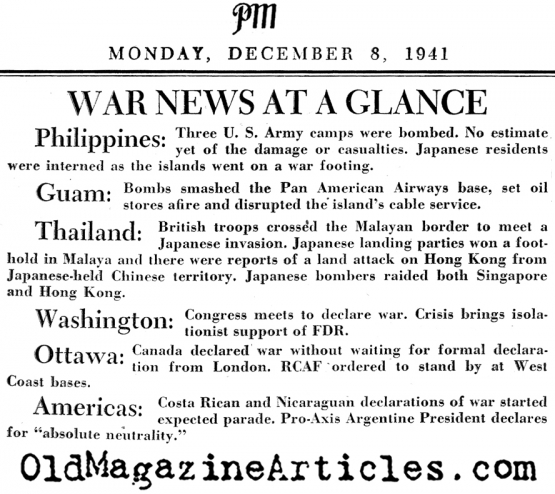Modern Political Advertising (Pageant Magazine, 1970)The Selling of the President is about the role of television in the Republican efforts to elect Richard Nixon president in the 1968 election. Written over forty years ago by Joe McGinnis (1942 - 2014), the book was an instant classic as it addressed the matter of "packaging a candidate" for a political contest in the same manner products are promoted for the marketplace:
"McGinnis concludes that 'On television, it matters less that [the candidate] does not have ideas. His personality is what the viewers want to share...'" •• Watch One of the 1968 Nixon Campaign Ads •• Chappaquiddick Cover-Up (Coronet Magazine, 1970)1970: One year after Mary Jo Kopechne had died in a car driven by U.S. Senator Ted Kennedy - questions still lingered concerning his questionable behavior after the accident. This article concerns the five female campaign aids who attended the party the night of the accident; they were the last to see Miss Kopechne alive as she entered the senator's car. These five were nicknamed "the Boiler Room Girls" by those who worked on Kennedy's re-election campaign and many people were curious as to why they were as tight-lipped as they were. The Unknown Jackie Kennedy (Pageant Magazine, 1970)Seven years must have seemed an appropriate amount of time to withhold information concerning the generally unpleasant character traits that were apparent in First Lady Jackie Kennedy - and so in 1970 Washington writers Lucianne Goldberg and Fred Sparks put pen to paper and recalled all the minutiae they could piece together regarding "Her Elegance":
"Jackie was master of deception. In the White House, she never wore her double-breasted mink coat when she could be photographed. But after her husband died, and she moved to New York, she wore the mink, as one fashion writer put it, 'to do errands around Manhattan'."
This article appears on this site with the permission of Lucianne Goldberg
Julian Bond (Coronet Magazine, 1970)"From time to time, certain young politicians suddenly capture the attention of their fellow Americans. One such individual is 30-year-old Julian Bond (1940 – 2015), a Negro legislator in the state of Georgia House of Representatives. 1970: #ME TOO (Coronet Magazine, 1970)If you were a woman with leftist inclinations during the 1960s and wanted to join one of the many revolutionary groups that promised to "burn it all to the ground", you wouldn't be required to bring a lighter - that was for the male hippies only - the women were required to bring coffee percolators and feather dusters:
"In the New Left, some people - men - are more equal than others. The revolutionary girl is distinguished from her male counterpart by one significant difference. The male can cut his hair, shave his beard and step back into the society he condemns. In trying to help the oppressed, the girls found they wear a uniform that they can't remove anymore than the Blacks can remove their skin. They can't remove their sex - and the men make use of it only too well."
More on this topic can be read here...
These men were big on reading the blather of the underground press and you can read about their journalistic tastes here... 1911: The First U.S. Shipboard Landing (Naval Operations, 1970)"At 11:01 a.m., (January 18, 1911) Eugene Ely (1886 - 1911), flying a Curtiss Pusher, landed on a specially built platform aboard the armored cruiser USS Pennsylvania at anchor in San Francisco Bay." A black and white photograph of the event is provided. Father and Son Over Pearl Harbor (Pageant Magazine, 1970)One morning a 17 year-old boy exclaimed to his amateur aviator father: "Let's fly around the island, Dad!" - this article wouldn't seem worthy of appearing on the internet if they lived on Nantucket or Martha's Vineyard, but the island in question was Honolulu and the morning was December 7, 1941...
 The Search for an Honorable Exit (Pageant Magazine, 1970)Using a public forum, retired U.S. Air Force General Edward Lansdale (1908 – 1987) proposed a plan for the withdrawal of American and Allied Forces from Vietnam - a plan that came to be known as "Vietnamization".
More Letters From Vietnam (Coronet Magazine, 1970) |